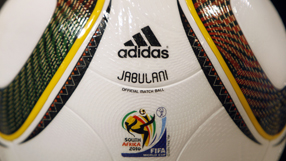
Now she complains that foreigners will be scared off by fear of AIDS and crime and there will be no World Cup bonanza.
South Africa has the world's biggest HIV caseload, with 5.7 million cases, and foreign fans have been repeatedly warned in their home countries about the dangers of casual sex.
Last year, some officials warned that 40,000 sex workers would invade this country from around Africa, but with the tournament only weeks away, the reality looks very different.
"It's great that the World Cup will be held here... I just wish we could have a bit of the pie," said Zandile, who works the streets of Sandton, one of Johannesburg's richest suburbs and a glitzy hub for entertainment and business.
Zandile and her colleagues fear the refusal of authorities to create safe areas for prostitution during the tournament will make it nearly impossible to attract clients.
"Foreigners and tourists don't like to look for the girls on the streets," said Mudiwa, a sex worker from Zimbabwe.
"The government needs to create a safe space for us, so that the customers know where to find us. When you get into a car, you never know if you'll be able to see your child again."
The best features, fun and footballing quizzes, straight to your inbox every week.
Some politicians last year called for the creation of protected areas for prostitution during the World Cup, following examples of zones designated during the last edition of the tournament in Germany in 2006.
Instead, cities such as Cape Town have preferred to clean up the streets, following New York's zero tolerance approach to crime.
Advocacy groups also unsuccessfully urged the government to put a moratorium on prostitution-related arrests.
"There are so many logistical and political issues inherent in the World Cup that sex work is very low on the agenda...it's politically much more expedient to ignore the problem than to deal with it head on," said Marlise Richter, a researcher who collaborates with sex worker advocacy groups.
LOST OPPORTUNITY
Germany changed its criminal law around sex work ahead of the event, but in South Africa "that opportunity has been wasted", Richter said.
The host cities have few plans for how to protect sex workers or their clients, saying that with prostitution still illegal, they were limited in what they could do.
Sibongile Mazibuko, the head of the World Cup team for Johannesburg, said the city would make condoms available, but had no plans for how to deal with the issue otherwise.
"We can't give them shelter because we can't be part of a crime...we can't have a banana republic that creates laws for an event for one month," she said.
The scourge of AIDS is also a powerful deterrent.
"People see us as breeders of AIDS, and that kills the business for us," said Mpho, another Sandton street girl.
Due to its clandestine nature, the number of sex workers in South Africa, the continent's economic mecca, is difficult to ascertain, with many operating from city brothels or suburban homes and some at high-end apartments, catering almost exclusively for foreign clients.
 Join The Club
Join The Club





